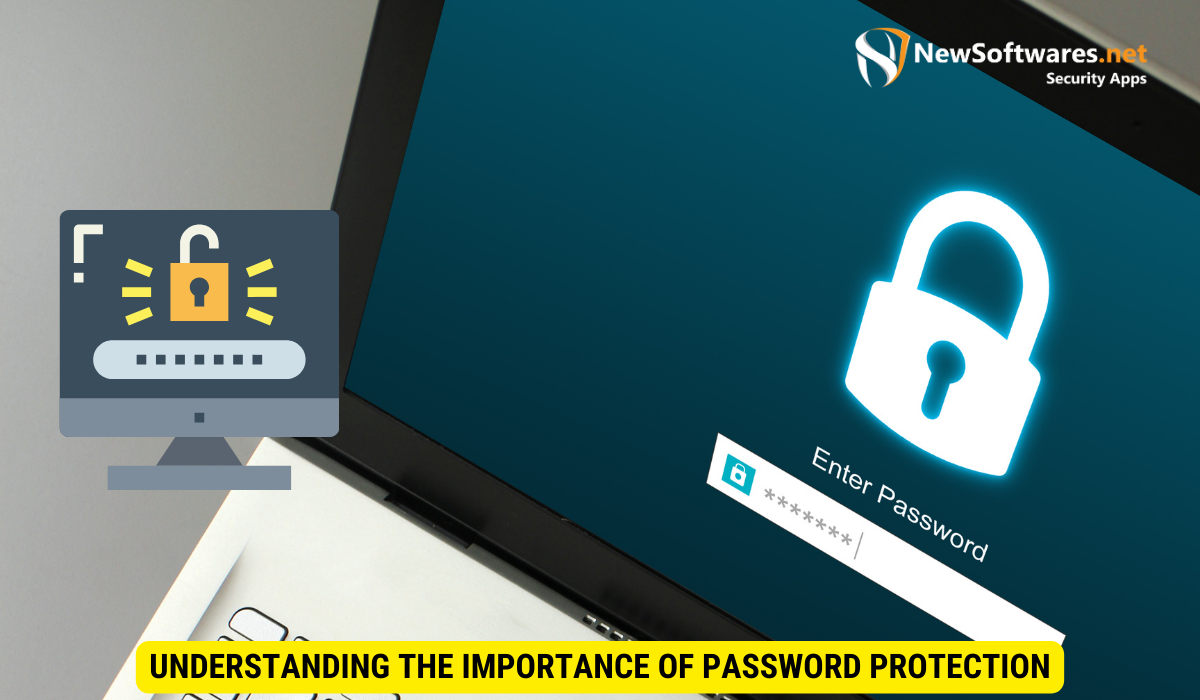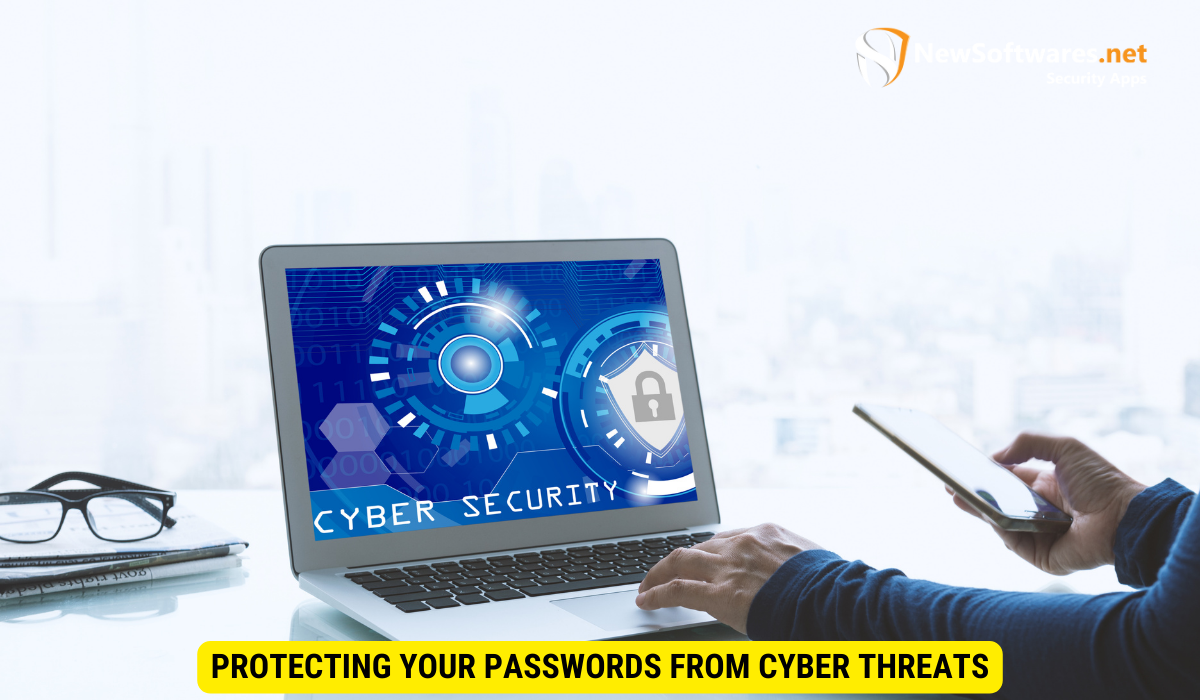Protecting your computer with password protection is of utmost importance in today’s digital landscape. By understanding the role of passwords in computer security, setting up strong passwords, implementing effective password management techniques, and using additional security measures like two-factor authentication, you can significantly enhance the security of your personal information. Don’t forget to stay vigilant against cyber threats!
In the digital age, password protection is a crucial aspect of computer security. We often take passwords for granted, but they play a vital role in safeguarding our personal information online. I will explore the importance of password protection, how to set up strong passwords, techniques for effective password management, and additional security measures you can take to protect your passwords from cyber threats.
Understanding the Importance of Password Protection

In today’s interconnected world, the role of passwords in computer security cannot be overstated. They serve as the first line of defense against unauthorized access to our devices, online accounts, and sensitive information. Passwords act as virtual keys, granting access only to those who know the correct combination.
Unfortunately, there are several common misconceptions surrounding passwords that can undermine their effectiveness. It is crucial to debunk these myths and understand the true nature of password security to ensure optimal protection.
The Role of Passwords in Computer Security
Passwords act as gatekeepers, preventing unauthorized individuals from gaining access to our personal data. They provide a layer of defense against identity theft, financial fraud, and privacy breaches.
While some may argue that passwords alone are not sufficient in today’s sophisticated cyber landscape, they still serve as a vital part of a multi-layered security approach. By employing strong passwords, we significantly reduce the risk of unauthorized access.
Common Misconceptions about Passwords
One common misconception is that complex passwords are more secure. While it is true that longer and more complex passwords are harder to crack, it is equally important to take into account the convenience and memorability of our passwords. Striking the right balance between security and usability is key.
Another misconception is that changing passwords frequently improves security. In reality, regularly changing passwords can lead to weaker overall security as people tend to choose simpler passwords or reuse old passwords with minor modifications. Rather than frequent changes, it is important to focus on creating strong, unique passwords.
Additionally, it is important to consider the potential vulnerabilities that can arise from password reuse. Using the same password across multiple accounts increases the risk of a security breach. If one account is compromised, all other accounts using the same password become vulnerable. It is best practice to use unique passwords for each online account to minimize the potential impact of a breach.
Furthermore, the use of password managers can greatly enhance password security. These tools generate and store complex passwords, eliminating the need to remember multiple passwords. Password managers also offer features such as automatic password updates and two-factor authentication, further bolstering security.
Setting Up Strong Passwords
Creating strong passwords is an essential step in securing your computer and online accounts. A strong password is one that is difficult for others to guess or crack, while remaining easy for you to remember.
Characteristics of a Secure Password
When crafting a strong password, consider incorporating the following characteristics:
- Length: Aim for a minimum of 12 characters to increase complexity.
- Variety: Utilize a combination of uppercase and lowercase letters, numbers, and special characters.
- Avoid common patterns: Steer clear of predictable sequences or common phrases.
- Avoid personal information: Do not include details that can be easily associated with you, such as your name or birthdate.
- Uniqueness: Create a unique password for each account to prevent a domino effect in case of a breach.
Tools for Generating Strong Passwords
Creating strong passwords can be challenging, especially when it comes to generating unique and complex combinations. Fortunately, there are password manager tools available that can assist in generating and securely storing strong passwords. These tools can save you time and effort while helping you maintain robust password security.
Implementing Password Management Techniques
Now that you understand the importance of strong passwords, it is equally important to implement effective password management techniques to ensure the security of your accounts.
The Basics of Password Management
Effective password management involves creating and maintaining strong passwords, as well as organizing and storing them securely.
Firstly, consider using a password manager to generate and store complex passwords. Password managers can also automatically fill in login credentials, saving you time and reducing the risk of mistyping your password. Be sure to choose a reputable and trustworthy password manager.
Additionally, avoid using the same password across multiple accounts. In the event of a security breach, using unique passwords prevents unauthorized access to your other accounts.
Advanced Password Management Strategies
Beyond basic password management practices, there are advanced strategies that can further enhance your security:
- Two-factor authentication (2FA): Implement 2FA whenever possible. This additional layer of security requires a second form of verification, such as a fingerprint or SMS code, in addition to your password.
- Regularly review and update your passwords: As best practices and password technologies evolve, periodically reassess your passwords to ensure they meet the latest security standards.
- Use encryption and secure backup: Protect your password manager’s data and backups using encryption and secure storage solutions. This ensures that even if your device is compromised or lost, your passwords remain secure.
Protecting Your Passwords from Cyber Threats

In today’s digital landscape, cyber threats are constantly evolving, and passwords are a prime target for attackers. To ensure your passwords remain secure, it is vital to be aware of common cyber threats and take proactive measures to protect against them.
Recognizing and Avoiding Phishing Attempts
Phishing is a deceptive technique used by cybercriminals to trick individuals into revealing their passwords or sensitive information. To avoid falling victim to phishing attempts:
- Be cautious of unsolicited emails or messages asking for personal information.
- Verify the legitimacy of websites before entering your login credentials.
- Avoid clicking on suspicious links or downloading attachments from unknown sources.
Dealing with Spyware and Keyloggers
Spyware and keyloggers are malicious software that can record your keystrokes, including your passwords, without your knowledge. To protect your passwords from these threats:
- Keep your operating system and security software up to date.
- Regularly scan your computer for malware using reputable antivirus software.
- Avoid downloading files or programs from untrusted sources.
Using Two-Factor Authentication for Enhanced Security
In addition to strong passwords and effective password management, implementing two-factor authentication (2FA) can significantly enhance your security.
What is Two-Factor Authentication?
Two-factor authentication adds an extra layer of security by requiring two forms of verification before granting access to an account. Typically, this involves something the user knows (password) and something the user possesses (such as a fingerprint, security key, or verification code).
Setting Up Two-Factor Authentication
To set up two-factor authentication:
- Enable 2FA on your accounts that offer it.
- Choose the appropriate second factor, such as an authenticator app or hardware token.
- Follow the setup instructions provided by the service or application.
Key Takeaways
- Passwords play a crucial role in computer security, acting as the first line of defense against unauthorized access.
- Strong passwords should be long, unique, and avoid common patterns and personal information.
- Password management techniques, such as using a password manager and implementing two-factor authentication, can further enhance security.
- Protect your passwords from phishing attempts and malware like spyware and keyloggers.
- Two-factor authentication adds an extra layer of security by requiring two forms of verification.
FAQs:
Q: How often should I change my passwords?
A: It is more important to focus on creating strong, unique passwords rather than changing them frequently. Regularly reassess your passwords to ensure they meet the latest security standards.
Q: Are password managers secure?
A: Reputable password managers utilize encryption and secure storage to protect your passwords. Be sure to choose a trustworthy password manager and practice good security hygiene.
Q: Can two-factor authentication be used for all accounts?
A: While not all accounts offer two-factor authentication, it is advisable to enable it whenever possible, especially for accounts containing sensitive information.
Q: How can I recognize a phishing email?
A: Phishing emails often have suspicious senders or ask for personal information. Be cautious of unsolicited emails and verify the legitimacy of websites before entering your login credentials.
Q: What should I do if I suspect my password has been compromised?
A: In case of a compromised password, immediately change the password associated with the affected account and monitor your accounts for any suspicious activity.
Conclusion
Securing your computer with strong passwords and effective password management techniques is essential in today’s interconnected world. By understanding the importance of password protection, setting up strong passwords, implementing advanced techniques like two-factor authentication, and remaining vigilant against cyber threats, you can take significant steps towards safeguarding your personal information online.
